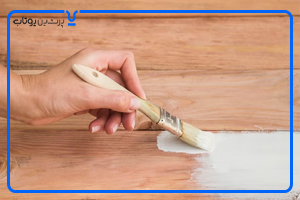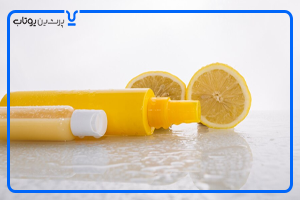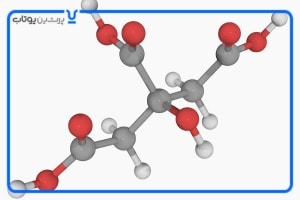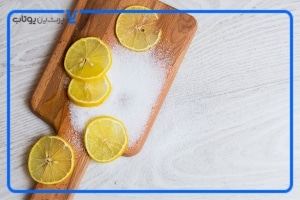آیا اسید سیتریک برای بدن ضرر خاصی دارد؟
آیا اسید سیتریک برای بدن ضرر خاصی دارد؟
آیا اسید سیتریک برای بدن ضرر خاصی دارد؟ درج نام اسیدسیتریک روی مواد غذایی و شوینده شما را نگران ضرر این ماده کرده است، با ما در این مقاله پرشینیوتاب همراه باشید و با خیال راحت محصولات حاوی اسیدسیتریک را خریداری کنید.
اسیدسیتریک یک اسید دوستداشتنی
اسیدسیتریک کاملاً بیخطر است. زیرا بدن شما آن را تجزیه کرده و از طریق ادرار دفع میکند. در واقع، حتی ممکن است در پیشگیری از سنگ کلیه اگزالات کلسیم مفید باشد. مطالعات نشان میدهد که اسیدسیتریک میتواند از تشکیل سنگها جلوگیری کند.
مطالعات در مورد اینکه آیا نوشیدن آبلیمو میتواند سنگ کلیه فعلی را درمان کند، متفاوت است. اما اگر سنگ برای شما نگرانکننده باشد، مطمئناً ضرری نخواهد داشت.
اسیدسیتریک و ضرر خاص آن
بیشترین چیزی که باعث نگرانی مردم از اسیدسیتریک شده است، کلمه اسید در این ماده است و کمی آن را ترسناک کرده است.
آیا واقعاً اسیدسیتریک ارزش این ترس را دارد یا بخشی اجتنابناپذیر از زندگی روزمره است؟
اولین چیزی که باید در مورد اسیدسیتریک بدانید این است که دو نوع وجود دارد.
اولین مورد از مرکباتی مانند پرتقال، لیمو و لیموترش گرفته میشود که معمولاً این نوع اسیدسیتریک به طور طبیعی ساخته شده و برای شما مفید است و آنتیاکسیدان بالایی دارد.
نوع دوم به طور صنعتی ساخته میشود که مصرف آن هم در مقادیر کم مضر نمیباشد.
مصرف غذاهای حاوی اسیدسیتریک طبیعی کاملاً سالم است و باید بخشی از برنامه غذایی شما باشد.
تنها عوارض جانبی منفی که ممکن است اتفاق بیفتد این است که اگر بخواهید میوههای سیتریک را بیش از حد مصرف کنید، مینای دندان را کاهش داده و باعث سوزش سر دل میشود.
اما میتوان این مشکلات را بهسادگی با نوشیدن آب بعد از مواد غذایی حاوی اسیدسیتریک از بین برد.
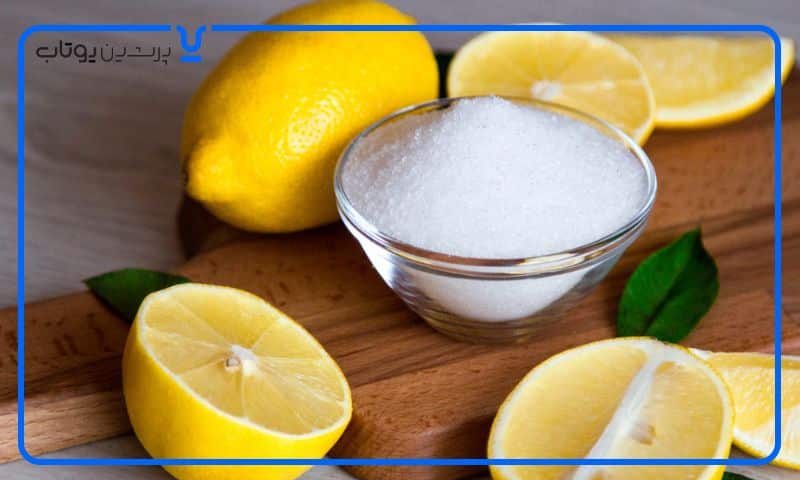
نداشتن نگرانی از مصرف اسیدسیتریک
اسیدسیتریک بهطورکلی توسط USDA بهعنوان ایمن (GRAS) شناخته میشود، اما گزارشهایی از اسیدسیتریک وجود دارد که باعث ایجاد زخمهای شانکر (زخم روی دهان و واژن)، درماتیت آتوپیک (بیماری شایع پوستی)، واکنشهای التهابی و ناراحتی معده در برخی افراد میشود.
افرادی که بهشدت به کپک یا مخمر حساس هستند یا به ذرت، چغندر یا قند نیشکر و نشاسته حساسیت دارند، بهتر است کمی مراقب باشند و از مواد غذایی حاوی اسیدسیتریک کمتر استفاده کنند.
فواید اسید سیتریک
گفتنی است، اسیدسیتریک با برخی از شاهکارهای بسیار چشمگیر، مانند محافظت از مغز به لطف خواص آنتیبیوتیکی و ضدالتهابی آن، نسبتدادهشده است.
همچنین با بهبود جذب مواد مغذی و با بهبود سلامت استخوان نیز مرتبط است.
حتی اگر شما در مورد مصرف اسیدسیتریک مصنوعی سختگیر باشید، بازهم احتمال زیادی وجود دارد که با آن در تماس باشید، زیرا جزء رایج محصولات آرایشی، لایهبردارهای شیمیایی، بمبهای حمام، مواد شوینده، لوازم پاککننده و حتی مکملها است.
اسیدسیتریک باعث تثبیت مواد فعال در داروها و بهبود طعم آنها میشود و خواص ضدباکتریایی آن، آن را به یک ضدعفونیکننده مؤثر تبدیل میکند، به همین دلیل است که به محصولات پاککننده اضافه میشود و خوشبختانه، به نظر نمیرسد که این عنصری باشد که ما باید خیلی نگران آن باشیم.
آیا اسیدسیتریک باکتریها را از بین میبرد؟
اسیدسیتریک اغلب برای تمیزکردن استفاده میشود زیرا اسیدسیتریک برخی از قارچها را میکشد، به طور مؤثر باکتریها و کپکها را از بین میبرد.
همچنین، برای ضدعفونیکردن، تمیزکردن و ضدعفونیکردن عالی است.
اگر میخواهید لکههای آب سخت، کف صابون و رسوبات کلسیم، زنگزدگی و آهک را پاک کنید، به اسیدسیتریک نیاز دارید.
آبلیمو حاوی 5٪ تا 8٪ اسیدسیتریک است و اغلب در تمیزکردن سبز استفاده میشود.
اسیدسیتریک را در چندین محصول تمیزکننده مختلف مانند پاککنندههای اجاقگاز، پاککنندههای فلزی، پاککنندههای ماشین ظرفشویی، پاککنندههای همهمنظوره، حمام، وان، پاککنندههای فرش، صابونهای ظرفشویی، خوشبوکننده هوا، لکه برها و پاککنندههای پنجره پیدا خواهید کرد.
ثابت شده است که اسیدسیتریک در پاکسازی لکههای سرسخت حتی به شکل طبیعی آن بسیار مؤثر است.
اغلب از لیمو برای تمیزکردن سبز استفاده میشود. اسید موجود در لیمو ضدعفونیکننده و ضدباکتری است. لیمو را میتوان بهعنوان سفیدکننده طبیعی استفاده کرد. علاوه بر این، بوی لیمو شادابکننده است.
اگرچه لیمو میتواند در تمیزکردن کار بسیار خوبی انجام دهد، اما یک ضدعفونیکننده نیست، بنابراین جایگزینی برای سفیدکننده یا هر محصول مرتبطی که میتواند میکروبهای خطرناک را از سطوح پختوپز پاک کند، نیست.
در این صورت بهترین گزینه میتواند محصولات سبز رنگی باشد که بر پایه لیمو هستند. این محصولات بهترین نتایج را برای شما به ارمغان خواهند آورد.
و در آخر اینکه؛
سازمان غذا و دارو (FDA) اسیدسیتریک را برای استفاده بهعنوان یک افزودنی غذایی بیخطر میداند و به نظر میرسد که تمام اسیدسیتریک مصرفی شما به طور کامل در بدن شما متابولیزه میشود. در نتیجه هیچ تجمع سمی وجود ندارد و ذخیره نمیشود.

